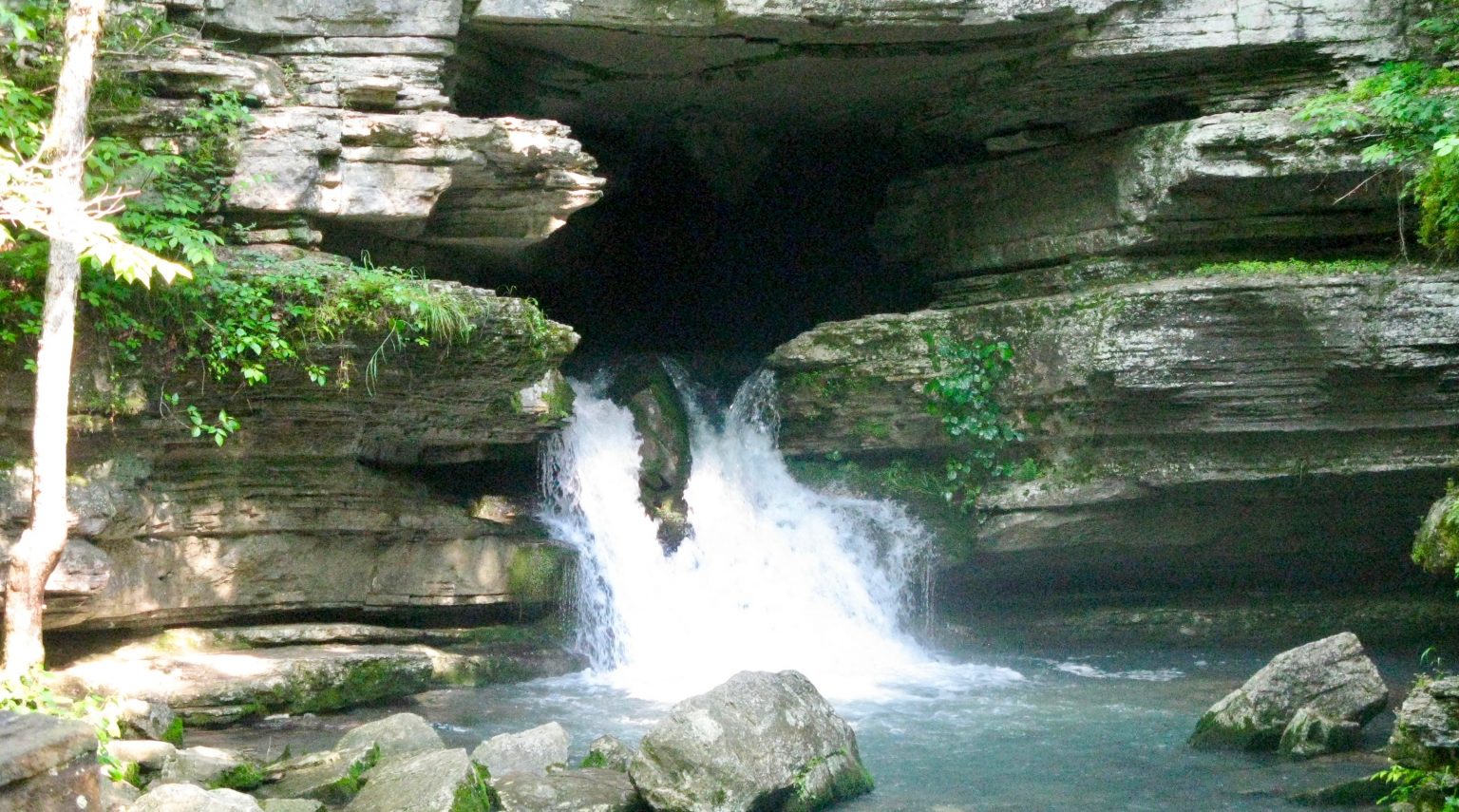Opinion: How To Talk About Climate Change

Blanchard Springs Recreation Area, Arkansas. Photo: Russ Vernon-Jones
Love, Justice And Climate Change

I recently asked some friends what they found hard about starting conversations about climate change. One said they just didn’t know how to begin. Others said they were afraid they’d get asked a question they didn’t know how to answer, or feared triggering a disagreement, or they just didn’t know how to react when people were hopeless.
We Must Talk
I recognized all of these as difficulties I’ve had in various situations. However, the experts say it’s really important that we talk about climate a lot. “The first step to action on climate change is to talk about it, that’s the number one thing we can do,” said Lucky Tran, who’s in climate communications at Columbia University. “We can’t solve any problems, especially at the global scale, if we don’t talk about the problem and the best way to address it.” This will be key to building a movement large enough to insist on action on the scale that is needed.
We used to think that the goal in communicating about climate was to convince people that climate change is real and caused by humans. That’s no longer necessary with most people. Polls show that a huge majority of people in the country understand that climate change is happening and are concerned about it. Our big job now is to make the topic more salient, let people know they are not alone with their concern, and enable people to express their desire for bolder climate action.
Support For Climate Action Is Twice What People Think It Is
The population in the U.S. dramatically underestimates the public support for major climate change mitigation policy. While 66-80% support these policies, USers estimate that only 37-43% support them. In other words support for climate action in this country is about twice as great as people think it is.
“The American public doesn’t realize how green it is, and even elected representatives don’t realize how green the American public is,” said Jon Krosnick, a social psychologist and professor at Stanford University. Just sharing this fact with everyone we know will boost people’s confidence that we can deal with the climate crisis successfully and encourage more people to talk about climate.
A Possible Plan For Conversations
A good climate conversation always involves connecting with the person you are talking to. Be interested in them and their views and leave them feeling you like them, regardless of how much you agree or disagree. There’s no single recipe for this, but I’ve had some good conversations that start with my sharing something that upsets me about the climate crisis and then asking them if they ever feel discouraged about what’s happening with the climate. Once we’ve shared that much I always make sure to share something hopeful. Sometimes I ask what they think needs to be done to solve the crisis.
For Example- Upsets And Hopeful News
For instance, I might say how sad I feel about losing the beautiful snow-capped mountaintops of the Rockies or the Alps; or how the flooding of a third of Pakistan just seems unimaginable; or talk about my friend in California who couldn’t live in his house for weeks last year because the smoke from wildfires was so bad that his son’s asthma was uncontrollable. For good news I share that the prices of solar power and batteries have fallen 90% in the last decade; or the fact that the largest bank in Europe, HSBC, after a lot of pressure from activists, announced that it won’t make any more investments in new coal, oil or gas, and it plans to invest $1 trillion in clean energy by 2030.
Be Prepared, Share A Little, And Then Listen, lLsten, Listen
I try to always have a climate problem and a hopeful fact in my mind ready to share whenever the opportunity arises. The most important thing in these conversations, after you’ve offered a brief bit of hope, is to listen, listen, listen. Everyone needs to be listened to about their feelings and their confusions and questions about climate change.
If people ask you questions that you don’t know the answer to, it’s fine to just say, “I don’t know, maybe we could find out.” If people disagree with me, I say something such as, “I still care about climate change and what it’s doing to people around the world, but tell me more about how you think about it.” I’ve often found that once people find you aren’t going to argue with them and that you are interested in their views, they often become less combative and more nuanced in their thinking.
Kentucky Coal Museum
Regardless of how people view climate change, almost everyone likes clean energy and the clean air, jobs, and energy security that it brings. Around the world, people often support good climate action not because they are motivated by climate change, but because they want healthier communities or want cost savings. A memorable example worth sharing is that in 2017 the Kentucky Coal Museum covered its roof with 80 solar panels because it saved the organization money.
Countering Hopelessness
Almost everyone feels some level of hopelessness about climate change. It’s important to listen to those feelings, and to share how you counter them in yourself. Sharing specific bits of good news helps. (“What’s Happening with the Climate” is a good weekly source for this.) As Susan Joy Hassol wrote in Scientific American last month, “We need to paint a picture of that better world—powered by renewable energy, with friendlier, [healthier,]more walkable cities—and show how and where the improvements are already unfolding. It’s psychologically important for people to know that we’re not just starting; we’re already on our way.”
In summary, in a good climate change conversation the other person learns that you care about the damage climate change is causing, that you like and respect them, that you find some reasons for hope, and that you are a good listener. Let’s all talk and listen about climate more often.
Russ Vernon-Jones was principal of Fort River School 1990-2008 and is currently a member of the Steering Committee of Climate Action Now-Western Massachusetts. He blogs regularly on climate justice at www.russvernonjones.org.
________________
